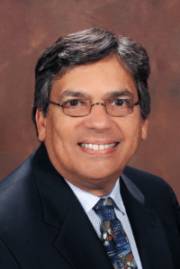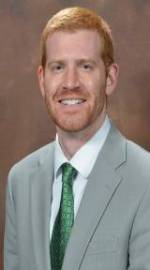These are exciting times in the field of psychiatry. Rapid advances in somatic treatments, neuromodulation, and psychotherapy provide practitioners tools that offer hope for those struggling with mental illness. Recognition of the social determinants of mental health has shaped how we now understand our patients. This awareness drives the need to integrate neuroscientific, social, cultural, religious, and psychological aspects of care.
The Medical College of Georgia is home to 51 residency and fellowship training programs. The Department of Psychiatry and Health Behavior is the umbrella for four ACGME accredited programs and a Psychotic Disorder Fellowship that is non-ACGME accredited. In addition, our department hosts an APA Accredited Psychology Internship Program and four post-doctoral psychology training programs. Beyond the core rotations, we encourage trainees to individualize the curriculum with personally crafted electives. We are excited to recruit trainees who share our curiosity about human behavior that are dedicated to learning holistic approaches to treating mental health conditions. We seek learners who bring enthusiasm, creativity, compassion, and self-reflection to their work and function well within a team.
We aim to prepare residents to practice in a wide range of clinical settings after graduation. We provide residents with most of their inpatient and forensic experiences at our state hospital, East Central Regional Hospital in Augusta, where they evaluate and care for a wide array of patients, including those with severe psychiatric disorders. The Augusta University Medical Center provides learners the setting to develop expertise as a consultant in a general hospital through our Consultation-Liaison and ED psychiatry services. Residents obtain in-depth Addiction experience at the Hope House (a residential women-only substance abuse rehabilitation facility) and Charlie Norwood VAMC, which provides the opportunity to learn essential management of patients with substance use, chronic pain disorders, and PTSD. The Stoney Building, where the department is housed, provides the main (though not only) adult and child outpatient psychiatry clinics.
Our residents work in a variety of clinical settings that provides strong psychopharmacological training, psychotherapy supervision by experienced psychology and psychiatry faculty, and a wide array of electives including the opportunity to act as sub-attending during the transition into practice.
Residents participate in full-day didactic seminars, clinical lectures, case conferences, journal clubs, morbidity and mortality conferences, and academic Grand Rounds.
PGY4s have the option of making a Grand Rounds presentation during their final year.
Residents participate in psychotherapy didactics throughout their four years of training, including CBT, DBT, ACT, MI, Psychodynamic, and Family Therapy. Didactics also includes discussions of pertinent current topics, using cases presentations, film, and other visual or written art forms, as a gateway to reflect on issues that can challenge our ethical, professional, social, and religious worldviews safely and constructively. During their first two years, residents participate in Motivational Interviewing training. The third and fourth year provides residents the opportunity to see patients and hone psychotherapy skills under the supervision of our expert faculty.
Our department enjoys active clinical practice and research in Mood disorders, Sleep Medicine, Psychotic Disorders, and Neurostimulation, including onsite Electroconvulsive Therapy (ECT) and Transcranial Magnetic Stimulation (TMS).
Our department boasts dynamic research in Mood disorders, Sleep Medicine, Psychotic Disorders, and Neurostimulation.
Trainees interested in research work alongside our faculty, including Dr. Joseph McEvoy, Dr. Vaughn McCall, Dr. Peter Rosenquist, Dr.Brian Miller, among other faculty. Residents routinely publish in peer-reviewed journals and present at regional and national conferences. Please visit our faculty page for a comprehensive account of research interests.
Publications by Faculty
https://www.augusta.edu/mcg/psychiatry/research/publications.php
Publications by Trainees
https://www.augusta.edu/mcg/psychiatry/research/trainees.php
Active Extramural Grants
https://www.augusta.edu/mcg/psychiatry/research/
Current research
https://www.augusta.edu/mcg/psychiatry/research/
Residents have the opportunity to hone their skills as educators, working with various learners, including medical students, physician assistant students, nurse practitioner students, pharmacy students, and nursing students. In addition, AU is home to the Medical College of Georgia, one of the ten largest medical schools in the country and the oldest continuously operating institution in the Southeast.
The Child and Adolescent Psychiatry Fellowship program offers our residents the opportunity to assess and treat pediatric patients in various settings, including residential treatment at Lighthouse Treatment Center, ambulatory care in our clinic, and child CL at the AUMC/Children's Hospital of Georgia. We also offer post-graduate fellowship training in Child and Adolescent Psychiatry--including a Post-Pediatric Portal Program (PPP) for practicing Pediatricians (the 5th in the country), accredited by the American Board of Psychiatry and Neurology, and once graduated, eligible for Psychiatry and Child and Adolescent Psychiatry Board Certifications.
Our department received an HRSA grant totaling $2.5 million until 2024 to train four fellows per year. As a result, our residents have the opportunity to learn and use Medication-Assisted Treatment (MAT), including the use of buprenorphine. Residents rotate in a variety of settings that include Hope House, a residential treatment for women with addiction disorders, Charlie Norwood VAMC, where they manage patients with addictions and chronic pain. In addition, there is an Addiction Medicine Consult Service at AUMC and an Addiction Medicine outpatient clinic in the Stoney Building.
Being part of the University System of Georgia, composed of 26 public higher education institutions, provides our residents with an opportunity to further their education in areas beyond psychiatry. Some of our past residents had obtained graduate degrees while completing their PGY 3-4 years. Those interested in an MBA, MPH, or other graduate programs or certificates can explore that opportunity with the good standing and consent of the training directors.
We are proud that our residency program is part of a diverse and eclectic group of faculty, trainees, and staff that provides a welcoming environment. We believe that diversity strengthens our program, providing fertile ground for intellectual, clinical, cultural, and spiritual growth. By spiritual, we mean a rich humanistic worldview that promotes dialogue and curiosity.
Recent graduates have also pursued further training in Geriatrics, Pain Medicine, Addiction Medicine, Child and Adolescent Psychiatry, Forensic Psychiatry, Neuropsychiatry, and Sleep Medicine, in training centers like MUSC, UCSF, Cincinnati Children's, Emory, USC, and University of Washington, Seattle. Others have become faculty at academic centers like Vanderbilt, Yale, and John Hopkins. Others practice in inpatient settings, community mental health centers, and private practice.
We look forward to welcoming you to Augusta. Along with the amenities of Georgia's second-largest city, Augusta offers a laid-back atmosphere and generous Southern hospitality. Enjoy minor league sports, the Master's golf tournament, entertainment venues, kayaking, hiking the trails along the Savannah River Canal, Clarks Hill Lake, and nearby equestrian destination Aiken, SC. Residents enjoy an excellent cost of living and can easily afford to purchase homes if they choose. Enjoy day trips to the beach, mountains, and the nearby cities of Atlanta, Columbia, Charleston, and Savannah.
We take pride in offering specialized attention to each resident and giving you the tools to succeed in any branch of psychiatry you choose. Our program is of medium size-- small enough to provide a close-knit atmosphere and big enough to provide the extensive resources and learning opportunities of a research University. Our faculty pride themselves on teaching and cultivating a collegial atmosphere. Please contact us to learn more about what training at Augusta University can do for you.

Richard Camino, MD

David Williams, MD